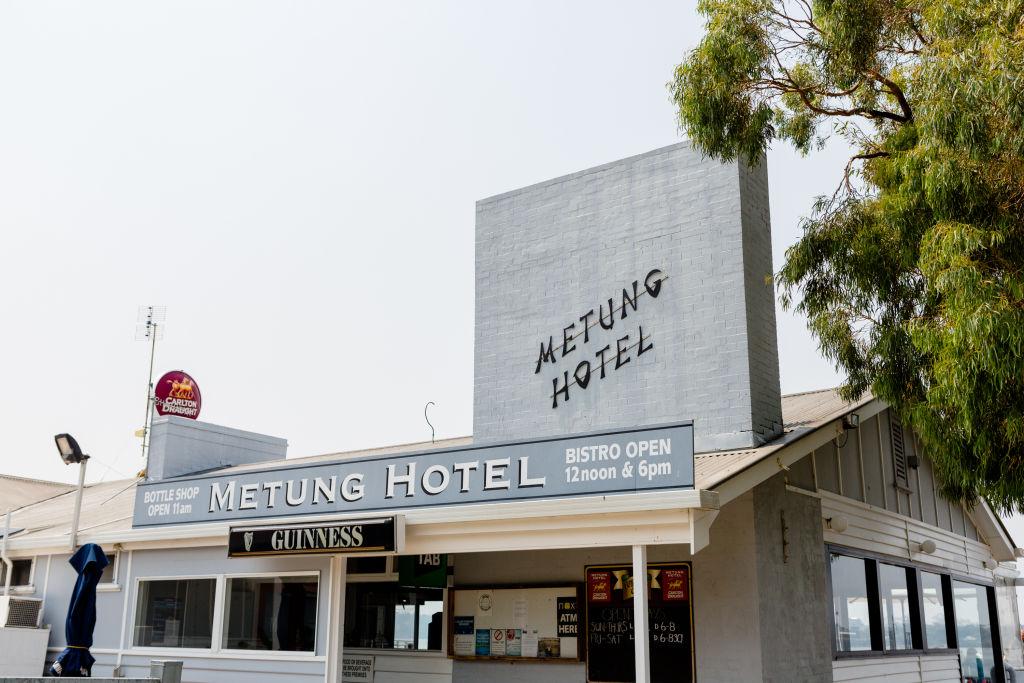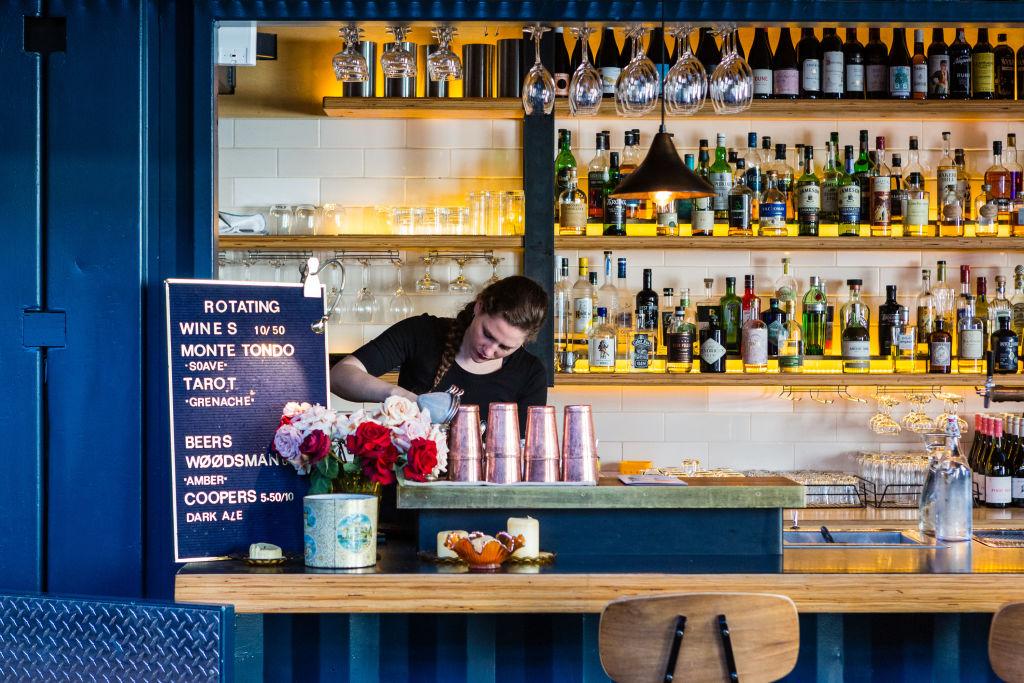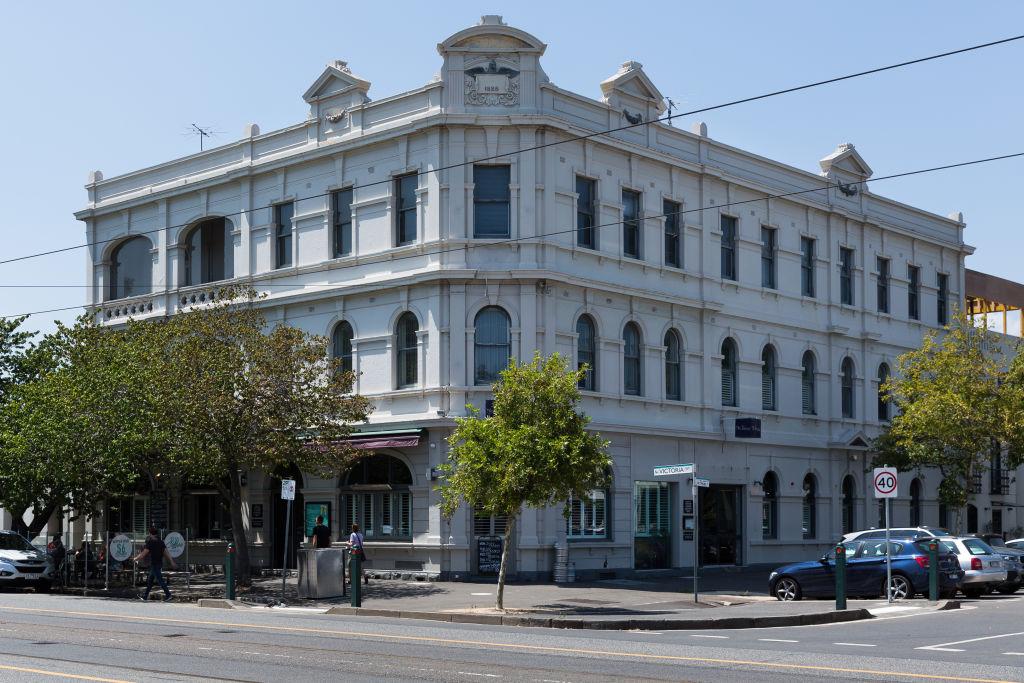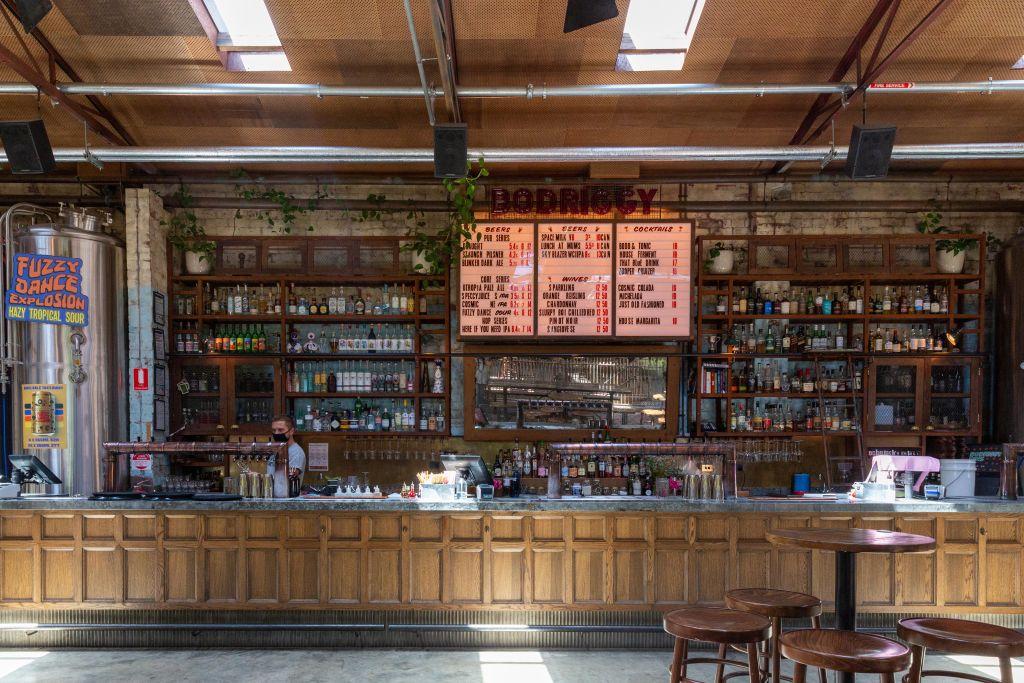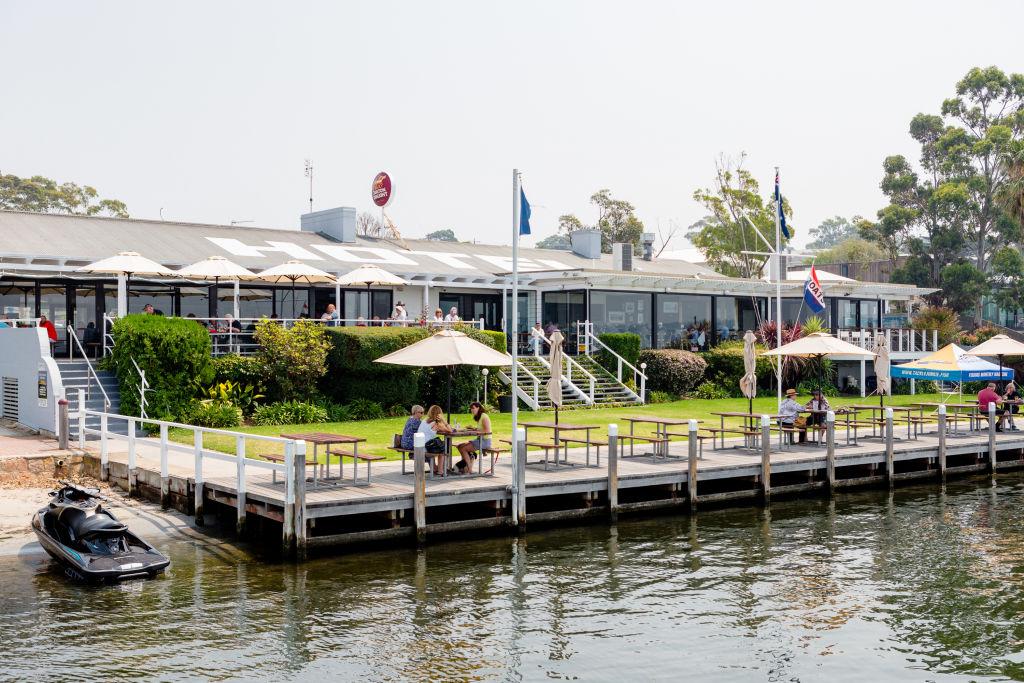- Related:
- Related:
- Related:
Thinking about investing in a pub in Australia?
A vibrant bar culture is deeply embedded in the Australian psyche, and with the right due diligence it can also be a winning investment that delivers value for money.
From family-friendly pubs to rowdy bars with live bands and foodie gastro-pubs, investing in an Australian pub brings purpose as it creates community engagement. Fresh ideas are a must to roll with the changes and gain financial returns, as markets vary state-to-state.
However, the chicken parmigiana still has its place on menus offering pan-Asian delights.
Across Australia, pubs are integral to our social fabric, the beating heart of a community from the outback to suburbia. These hubs see banter exchanged and bonds formed, and the market is frothing with potential.
Lenders consider pubs an attractive choice with long-term growth prospects. Despite recent trends towards healthier consumption, pubs can offer steady cash flow, diverse income streams, and an ability to influence profitability and revenue by switching up the offerings.
Here is everything you need to know about what constitutes a good pub investment.
The pub investment landscape in Australia
Despite the cost-of-living crisis, alcohol tax hikes (Australia has the third highest in the world) and high inflation, investing in pubs is still considered a worthy asset class driving significant shifts in the commercial property market.
Pubs have historically shown resilience during economic downturns, with consumers driven by the need to socialise. The COVID-19 pandemic devastated the pub scene temporarily across the country, but clever investors pivoted quickly to online sales and delivery, strengthening their market position. Pubs ended up being one of the hottest property asset classes during the pandemic, with around $2 billion in transactions in 2021.
Post-pandemic, pub attendance saw a noticeable resurgence, and by the end of 2021 around 70 per cent of Australians said they visited a pub at least once a month, according to a recent Burgess Rawson report into the pubs and liquor industry.
Demand to buy leased hotel and liquor assets is increasing with cap rates now below 5 per cent. Pubs and liquor investments have consistently generated high returns, with metro Victoria pubs alone recording $166 million in sales since 2022, with a median cap of 4.36 per cent. Metro pubs in NSW offered the sharpest cap of 3.59 per cent, however sales were lower at $32.4 million, according to the report.
Cap rates and yields both measure rate of return. The difference is, the cap rate uses the current property value as a denominator, while yield uses the property’s purchase price. The cap rate can show the property’s return, taking into consideration property appreciation or depreciation.
How to invest in a pub in Australia
While the majority of Australian hotel buyers are generational families or experienced private groups, there are many ways to still wrap your hands around a beer tap.
James Smithers, national director for investment management at HTL Property, says some domestic and offshore funds have also taken an interest in the sector lately, referring to “some high-level, sophisticated, transactions” while speaking during a Ray White Commercial webinar on trends in hospitality and tourism.
All with their own risks and rewards, the most popular ways to invest include direct ownership, leaseholds and franchise. Some other ways to enter the market include syndication, equity crowdfunding, or if you want to be hands-off, passive investment funds or REITs (real estate investment trusts).
Direct ownership is attained when an individual or group buys a pub, which comes as a land, building and business package. An owner or manager will then take the reins and become accountable for profitability, operations and management. However, direct owners may also choose to lease out the property.
Leaseholds provide investors, be they individuals or hospitality groups, with a lease to set up or continue running a pub business without owning the property. Leaseholders must cover the costs of fitout renovations, and have capital to hit the ground running.
When franchising a pub, investors pay a franchise fee to a parent company in exchange for the use of its brand, operational systems and support network. The Bavarian Beerhouse franchise, which offers a German beer hall experience, is an example of this, with venues around NSW, Queensland and the ACT.
Pubs in popular culture in Australia
It doesn’t matter whether you’re in an outback town or meandering through a metropolis, you’ll likely stumble across a humble pub, be it a public house, brewery, bar, alehouse, tavern, watering hole, saloon, hotel or inn. Pubs are integral to Australian identity, reflecting the country’s values of camaraderie and relaxed social interactions. Local culture is celebrated through events, live music and sports. Others come with pokies machines. Sophisticated digital ordering systems and ongoing refurbishments enhance customer experience and operational efficiency.
The first pubs in Australia, established in the late 18th and early 19th centuries, were used in the same way they are now, as community hubs. Back then they were simple structures set up for settlers and convicts with basic accommodation and drinks, mostly beer and rum. One of the oldest pubs in Australia, the Macquarie Arms Hotel in Windsor, 60 kilometres west of Sydney, welcomed its first patrons in 1815. (This year, another of the nation’s oldest pubs, the Lord Nelson in Sydney’s The Rocks district, fetched $20 million at sale.)
Later, towns tended to be built around goldfields, and as the population grew pubs became synonymous with social interactions. As their design evolved, so too did the drinking culture, influenced by social norms, health awareness and economic factors. Now a more health-conscious approach, along with diversity of choice for international wine, craft beer and cocktails, and low-alcohol or alcohol-free drinks, supersedes the strong binge drinking culture of the 1970s and ’80s.
Pubs play a vital wider economic role by creating jobs from bartenders to chefs and management, as well as attracting tourists. They also support local suppliers, which creates cross promotion within a township, enhancing community sustainability. They also contribute to government revenues and stimulate industry growth through innovation and competition, as seen in the highly competitive craft beer landscape, which enhances consumer choice.
Pubs are still in hot demand, according to HTL Property managing director Andrew Jolliffe. The market has cooled slightly compared to its peak in 2022. Rising interest rates, changing investor patterns and less access to finance saw volumes dip in 2023, but Jollife believes figures are looking stronger this year.
“We’re in 2024 now and we believe it will be up on 2023, not where 2022 was, but certainly bouncing back,” he says.
“It’s been quite listing-driven, but in a geographic sense regional/coastal activity is still really a feature. However, there has been a greater proportion of metro assets sold in 2024 compared to the previous years.”
There are hundreds of pubs for sale across Australia right now. Check out this hand-picked selection for starters.
Benefits of investing in pubs
Investing in a pub is up there with the great Australian dream to own a home. Backing one can bring financial and social rewards, with the potential for significant returns in a thriving industry despite decreases in household spending.
Steady revenue stream
Pubs can generate a steady cash flow, especially where foot traffic is high, with hungry punters – be they first-timers or repeat customers – stopping by for a bite to eat and an ale to wash it down. Savvy investors in pubs can now potentially have six revenue streams across food, beverage, events, gaming, retail and accommodation, whereas traditional pub owners would focus on just two to three streams of revenue. In Western Australia there are no poker machines in hotels.
Community engagement
Pubs serve as social hubs where people meet, thrive socially and build lasting connections and community ties. It may feel like a home away from home for some, leading to a loyal customer base and more pop-ins. These vital gathering places create a sense of belonging and community spirit, where loyal football fans meet before and after games. A town’s tourism can benefit from the rich history of pubs, which are often some of the oldest buildings in towns. Visitors with disposable income sniff out pubs for an authentic local experience, with people-watching to boot as the locals let down their hair.
Long-term investment
Pubs offer the potential for property appreciation for multiple reasons. The first is the increase in property values at highly desirable locations, so if you’re positioned well, you will benefit as interest in the area grows. Secondly, investors may renovate their venue which in turn attracts more patrons and drives property values higher. Thirdly, zoning and redevelopment potential might see a pub situated in an area with flexible zoning regulations benefit from urban renewal, which can also boost prices. In the current economic climate, punters are looking for ultra-foody dining experiences and social spaces, which will see well-located pubs benefit thanks to increased interest.
Tax benefits
It’s important for investors to consult an accountant to ensure the business is complying with local tax laws as well as taking advantage of available deductions. Publicans in Australia can benefit from: depreciation deductions for furniture and kitchen equipment; immediate write-offs within a year; GST input tax credits; and operational expense deductions such as wages and rent that lower taxable income. If a pub is sold, owners might benefit from capital gains tax concessions, especially as smaller operators. Fringe benefits tax exemptions are also available, as well as business grants and subsidies depending on which state or territory you’re in. Pubs also contribute revenue through taxes, licensing fees and employment contributions which help the local and national economy.
Risks and challenges of pub investments
Every investment comes with challenges, which should be addressed in a detailed business plan to allow for easy steering through murky waters.
Operational challenges
These can come in the form of staffing and management issues, but can be minimised by hiring industry-experienced staff adept at dealing with everything from tricky patrons to social media and marketing.
Regulatory compliance and health regulations
These can be difficult to wade through, are complex and often require a trained eye – which can be costly. But it’s important to get the basics right, from alcohol licensing to health and occupational health safety protocols and local laws. In Australia, work health and safety (WHS) laws and their implementation vary by each state or territory.
Economic factors
Market downturns, recessions, trends in tourism, and changes in patron patterns can affect the viability of a pub investment. The devastating effects of the pandemic laid bare the industry’s vulnerabilities. It saw staff redundancies, long-term closures and changes in consumer behaviour, but it also saw adaptation of technology and an ability to diversify. The costs of running a pub are also pretty high, with outgoings for staff, inventory, utilities and maintenance. Patronage, and thus demand, can vary from season to season, leading to inconsistent revenue across the year. The local property market, susceptible to new entrants, could also affect a pub’s property value.
Key considerations when investing in pubs
Location
This couldn’t be more important when investing your hard-earned cash in a pub. Neighbourhood nooks, clattering city streets and vibrant villages all benefit from high foot traffic, which in turn boosts sales and revenue. Pick a location in a city centre, tourist hotspot or busy suburb and ensure it’s easy to access by public transport. Drivers will need suitable parking too.
Demographics
When trying to understand your customer base, target demographics go a long way. How old are the locals? How much income do they earn? What preferences do they have? Are they well behaved? Or do they push the envelope and create disharmony with neighbours? Once you have done your market research, tailor your offerings to maximise sales.
Community engagement
Don’t forget to ask locals what they want, and how the pub can serve the community. By undertaking community engagement, niche offerings will lead to happier customers – be they music-lovers on a night out, families who appreciate the change table in the toilets, or die-hard trivia fans looking for a weekly parmigiana.
The pub investment landscape in Australia presents both opportunities and challenges. Just don’t forget to do your due diligence and seek the right advice from a financial professional.


